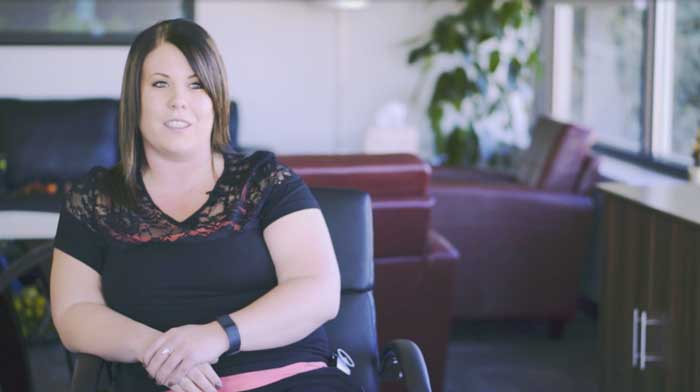Amanda’s recovery story begins before her drug use began. Her family had a history of addiction with both parents being active in addiction. Her father had a hard time with substances and served jail time while Amanda was a teenager, so it was an easy decision for her to stay away from them after seeing him struggle. After her father’s suicide, Amanda had a period of intense depression and anxiety. She turned to other substances to help dull the emotional pain she felt from this trauma. From alcohol to heroin, her quest to dull the pain found her constantly looking for the next high. She had to use just to make it through a normal day and by that time life was extremely hard to manage. Things quickly spiraled out of control. After her family confronted her, Amanda tried several times to get clean and stay sober. All of the attempts were unsuccessful.
Amanda attended a residential treatment program after attempting to stay sober. She had been hospitalized and experienced some scary encounters with drug deals. She had tried to detox herself, but her body shut down. This hospitalization came with an ultimatum from her step-dad. He said if she didn’t get professional help, he would turn her into the police and report her drug use. She agreed to his terms and checked into a detox program after being released from the hospital. She gained her sobriety and waited to be accepted by a county funded program. She attended an outpatient program, and then an inpatient program.
It was uncomfortable for Amanda to experience emotions again and feel. The process was scary and the emotions were complex. Her lack of commitment lead to another relapse. She found herself at rock bottom and again looking for help. Her family had cut her off at this time. A friend recommended New Roads Behavioral Health and after a few phone calls, Amanda checked herself in. After talking with admissions, Amanda was immediately comforted. She found the approach of the staff to be warm, caring and more involved with her on a personal level. The medical staff were very concerned about her wellbeing through the detox process and withdrawals. This process was still scary and new; she didn’t have the support of her family. Amanda found that she liked who she was when she was sober and decided to fully commit to the process – but with some limits surrounding her father’s death. She graduated the program and maintained her sobriety for a time. While at New Roads she was introduced to Alcoholics Anonymous (AA) Meetings; but attended them without really applying herself.
When she relapsed again, she continued using to cover up the guilt and shame she felt after failing again. Her step dad confronted her and offered to send her to another state hoping a change of scenery may help her. After some consideration, she decided to return to New Roads and address all of the emotional pain that was keeping her from staying with a recovery plan. She felt comfortable at New Roads and knew that a change in location wouldn’t help her maintain her sobriety.
Amanda describes her second treatment round with New Roads Behavioral Health as a “relief”. Amanda’s recovery involved some intense therapy involving her family relationships and the events surrounding her father’s death. She was able to talk about his suicide for the first time and get the help she needed with EMDR. Amanda entered the transitional program at New Roads and was offered a position in vocational training. After graduating, she had the skills necessary to buy a car, get her own apartment, get a sponsor in AA and really live independently. With graduation, she was offered a position at New Roads Behavioral Health. She says that this opportunity has made all the difference.
“I really appreciated the fact that at New Roads, [you are] not just another person. Like, Eric knows everybody by name and knows your story. And so I wasn’t just another statistic walking through the halls. I had never been somewhere to where the executives actually knew who you were and knew the background of your story and would take time out of their day to speak to you. Something that really stuck out to me and made me feel loved and cared here were simple little things. Eric Schmidt sat down with me one time and helped me create my resume. Something so simple, but I would have never experienced that at another program. Today, I am able to live a life without any substances, and I’ve realized that I have to do that without alcohol. I have an amazing support system. I have my family back in my life. I am financially stable for the first time ever… it’s been a long and difficult road, it hasn’t always been easy, but it’s definitely easier than being out there using and worrying about wether that high was going to be my last. Today I have just over 21 months sober.”
Listen to Amanda’s Recovery story:

